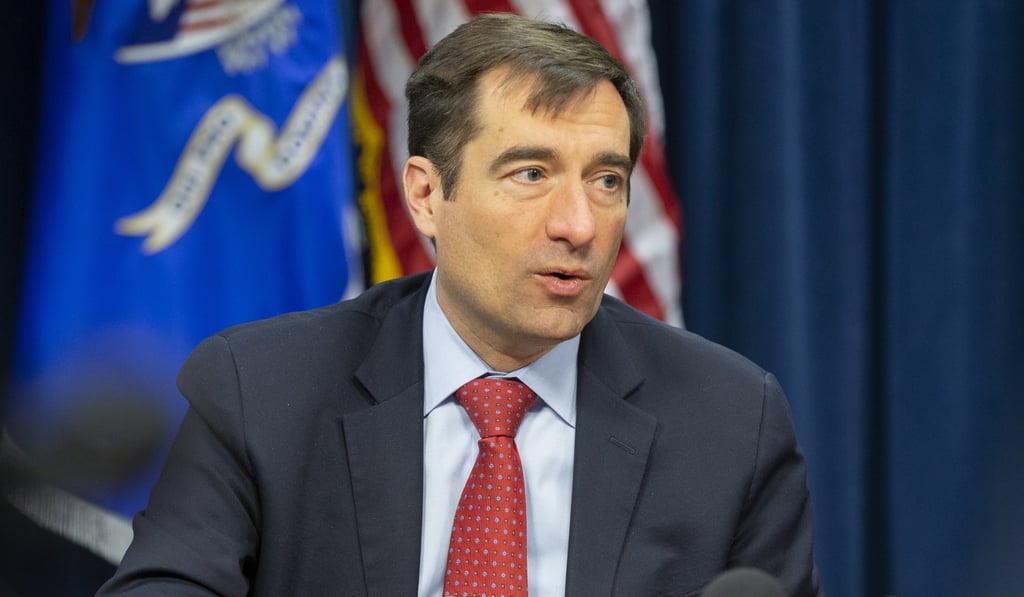US federal prosecutors take aim at Chinese economic espionage
- Massachusetts seen as ‘target-rich environment’ for intellectual property theft due to its research universities, biotech, cybersecurity and defence firms
- Officials at local companies and colleges have been encouraged to bring suspected instances of espionage to attention of federal investigators

Federal prosecutors in Boston are looking to crack down on economic espionage by Chinese nationals.
US attorney for Massachusetts Andrew Lelling and US assistant attorney general John Demers said on Friday they met officials at local companies and colleges this week to encourage them to bring suspected instances of espionage to the attention of federal investigators.
Demers said Massachusetts was a focus of the Department of Justice’s “China Initiative ” announced last November because its research universities and biotech, cybersecurity and defence companies made it a “target-rich environment” for Chinese nationals seeking to steal intellectual property.
Part of the initiative is getting universities and companies to realise they are potential targets.
“You could be targeted from the outside in,” Demers was quoted as saying by the Boston Herald. “But there’s always the risk that you are being targeted from the inside out.”
